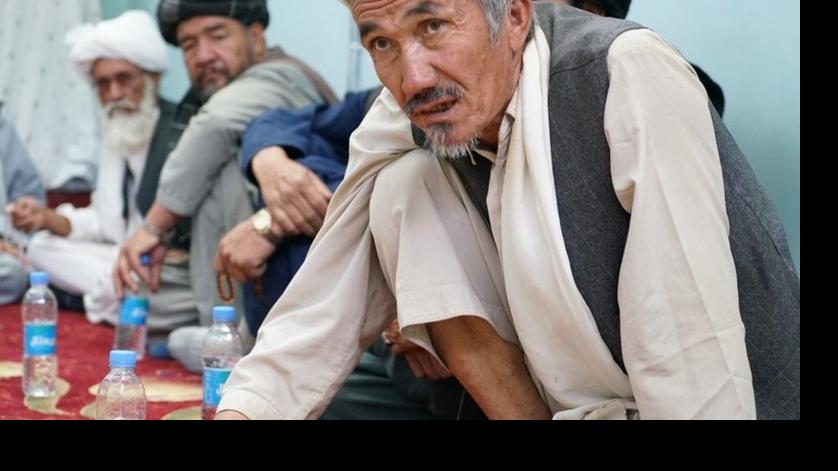KITI - Government officials, religious scholars, elders, activists and other community leaders from Daikundi and Ghor gathered at a UN-backed symposium in Daikundi’s remote western district of Kiti to take stock of local initiatives to promote social cohesion and advance peace.
More than 20 community leaders from Daikundi and Ghor attended the event, organized by UNAMA’s Bamyan regional office, to exchange ideas about the main factors eroding social cohesion in districts around Kiti and across Afghanistan, and to chart out possible next steps toward peace.
“Communities are responsible for safeguarding a peaceful environment for the benefit of everyone,” said Mohammad Ali, an elder from Daikundi’s Nowmish district.
Nowmish, like the other western districts of Daikundi, is relatively peaceful in comparison to some of the more restive parts of Afghanistan. But the communities living there are affected by insecurity in the neighbouring provinces of Helmand and Uruzgan.
In the lively discussion, participants underscored the importance of maintaining close ties with other communities, even those in insecure areas, as a way not only to ease tensions but also to maintain access to essential services, such as healthcare and education, and to collaborate on development.
“Peacebuilding efforts that are not followed by development and better service delivery ultimately fail,” said Mohammad Hussain, an elder from Daikundi’s Pato district.
Ali Ahmad Wafaee, a religious scholar, stressed that by building schools, roads and clinics, and by investing in peaceful communities, even those that border insecure areas, the potential for peace will multiply. “Insecure communities around them will be persuaded to embrace peaceful living and to engage, cooperate and coexist peacefully,” he said.
An elder from Ghor’s Pasaband district noted that communities there have been cut off from the provincial capital, and from essential services, due to insecurity on the road west to Ghor’s capital of Firuzkoh.
“Conflict has affected the community’s access to higher education, better healthcare services and more economic opportunities,” he said. “Insecurity in our district had spread not by arms or violence but because of lack of development.”
At the conclusion of the symposium, the participants jointly resolved to carry the discussion forward among their respective communities in future events and engagements.
Daikundi’s western districts, part of Afghanistan’s central highlands region, are among the most remote in the country because of their harsh terrain and the poor condition of roads leading to the area. Kiti, one of the most peaceful districts in the western area of the province, serves as hub for humanitarian programmes and peacebuilding efforts.
The Kiti symposium is one of many other similar programmes, events and initiatives resulting from UNAMA reaching out to a range of groups across the country to create spaces, both physical and on social media, for them to come together and discuss issues that are of critical importance to them, and to strategize on the best way forward.
At almost every UNAMA-backed event, local media partners not only record the discussion and debate for later rebroadcast, but also create new programmes around the issues that are raised, extending the discussion and creating new opportunities for local voices to be heard on issues such as peace, reconciliation, government transparency, human rights and rule of law.
In accordance with its mandate as a political mission, UNAMA supports the Afghan people and government to achieve peace and stability. UNAMA backs conflict prevention and resolution, promoting inclusion and social cohesion, as well as strengthening regional cooperation. The Mission supports effective governance, promoting national ownership and accountable institutions that are built on respect for human rights.
UNAMA provides 'good offices' and other key services, including diplomatic steps that draw on the organization’s independence, impartiality and integrity to prevent disputes from arising, escalating or spreading. The Mission coordinates international support for Afghan development and humanitarian priorities.






